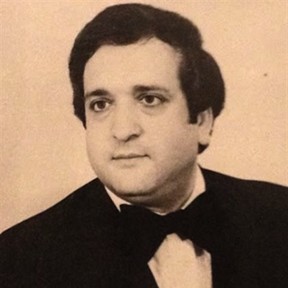October 8th, 2021, Shabbat is almost here!
And today we will listen to an inqilab in the djarka tab’, by Cheikh Zekri. If you haven’t understood anything, don’t worry: read on!
 Hello, how are you? I hope well. Today’s edition is the number 90. What does this mean? That the number 100 is coming soon! I started this initiative in the Shabbat of Hanukkah of 2019. Since then, most of the weeks there has been an edition of MBS. You have all of them on the website.
Hello, how are you? I hope well. Today’s edition is the number 90. What does this mean? That the number 100 is coming soon! I started this initiative in the Shabbat of Hanukkah of 2019. Since then, most of the weeks there has been an edition of MBS. You have all of them on the website.
This morning, following my unhealthy habit of looking at emails before even waking up, I read this sentence while half asleep:
“The Andalusian legacy is thus not only a central part of our Sephardic heritage, but is an essential element in the human relations between Jews and Arabs at a time when those relations are at an all-time low.“
It sounds thrilling, doesn’t it? It made me think about the North-African Jewish artists that have been protagonists in Music Before Shabbat before (click their names to visit their edition): Reinette l’Orainese, Salim Halali, Zohra El Fassia, Saoud l’Oranaise and Cheikh Zouzou.
So the need to return to this legacy arose automatically. Today we will listen to another of those artists who have kept alive the legacy of Andalusian music, that legacy that Yuval Evri mentions in his work (that is available in Academia and about which I will probably return in the future) as an essential element in the human relations between Jews and Arabs. I hope you’ll enjoy the recording selected for today: Cheikh Zekri, singing Ya Assafi Ala Ma Mada.
Then, please, spread the word.
| Share this with a friend, right from here |

About Cheikh Zekri
Although if you search for “Cheikh Zekri” on the internet, you will find quite a few entries about him, related to the recordings available. But I have not located a biography. This is a pity. If you had any tips, please, let me know.
There is an Algerian political activist Moufdi Zakaria, whose name was “Zekri Cheikh”. That is another person.
The portrait ? is from Musicme.
About the piece Ya Assafi Ala Ma Mada
Ya Assafi Ala Ma Mada means “my regrets about the past”. The author of the poem is Lisan Al-Din Ibn Al-Khatib, known also as Abu ‘Abd Allah Muhammad al-Salmani Lisan al-Din or just as Ibn al-Jatib, born in Loja (Granada province) in 1313 and deceased in Granada in 1374 (according to Real Academia de la Historia). He was a politician and diplomat who held relevant positions as secretary and visir for two Nazari kings. He was also one of the most prolific Andalusí writers and historians. It is impossible to summarize his life in a few words so if you are interested, it is a path to learn about the history of his time and about the relationship with Al Andalus and the Kingdoms of Castilla and Aragón, that was the context of the development for the Sephardic culture at that time in the land of the current Spain. The mentioned Real Academia de la Historia has a comprehensive biography, here. It is in Spanish but the automatic translators work quite well with English.
This ? picture of the Alhambra in Granada is by Slaunger and available here.

- According to Papeles del festival de música española de Cádiz, nº 2, 2006, an inqilab is “a lilting and lively composition sung over a poem muznim (quatrains and refrain).”
- And the jârka is the tab’, a concept similar to the maqam or mode. As mentioned a previous edition: “Very basically, in the Arabic, Persian, Turkish… music a makam is a scale, like a guide for performance, that defines a mood”.
